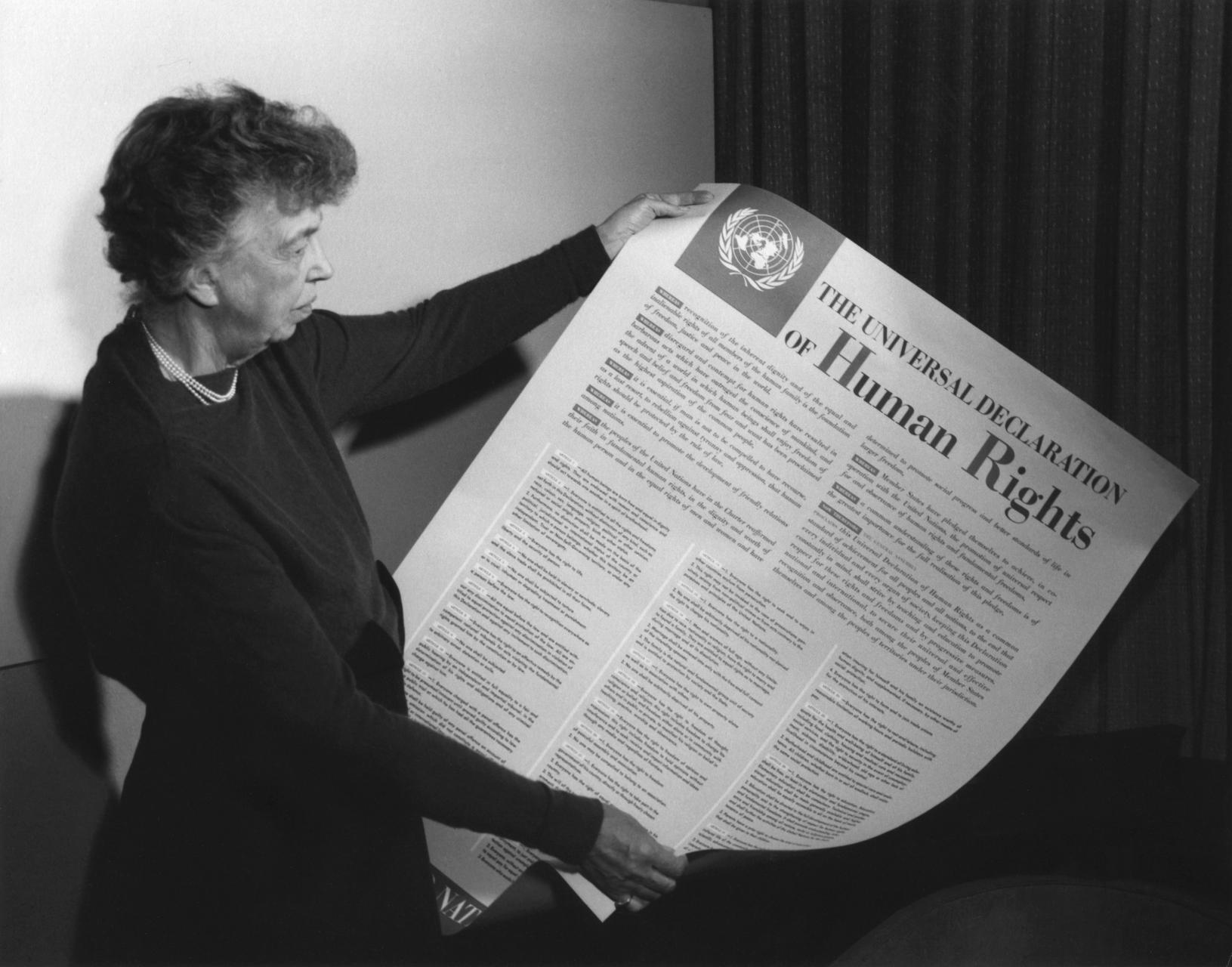
Eleanor Roosevelt, chair of the drafting committee, holding the paper. | Wikipedia
Palma01/10/2021 11:50
Has anyone read the Universal Declaration of Human Rights? I recommend it – it’s not very long and easy to read. The problem is that since it was adopted by the United Nations in 1948 human rights have got worse, rather than better.

No comments
To be able to write a comment, you have to be registered and logged in
Currently there are no comments.